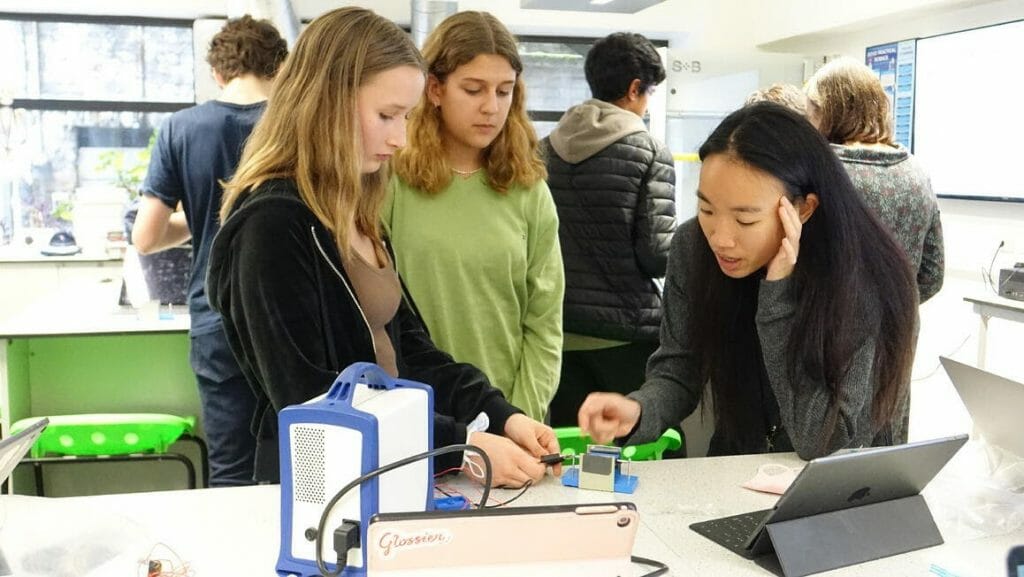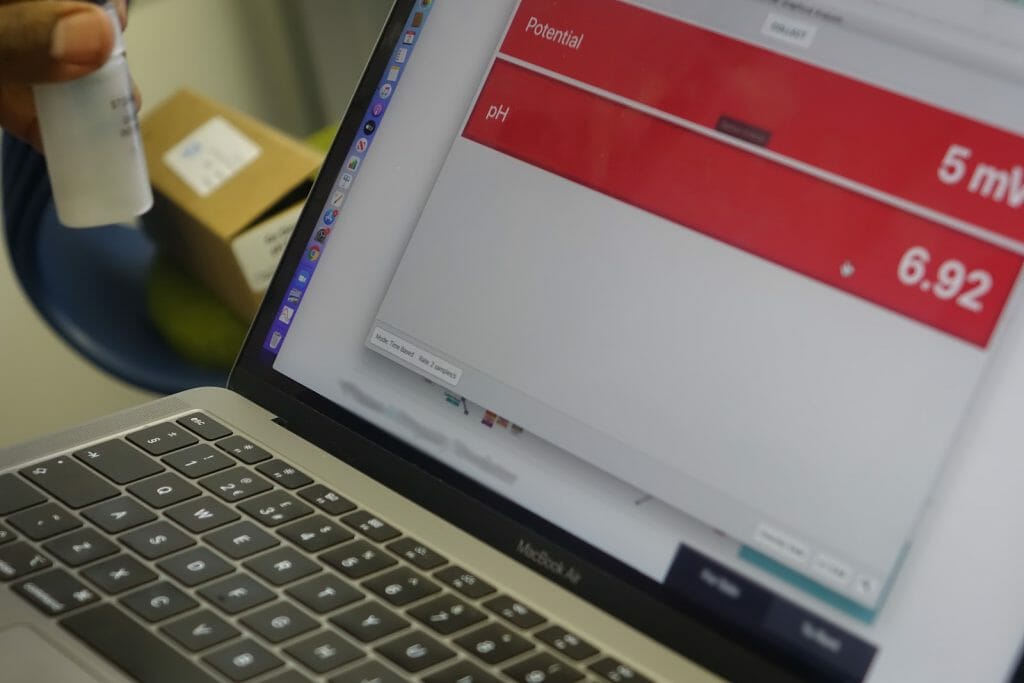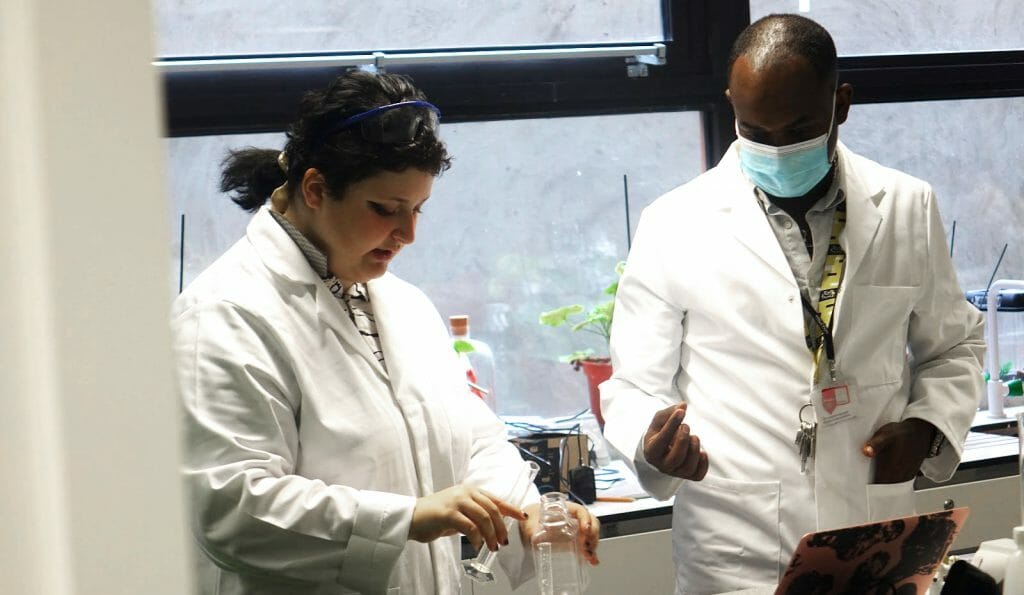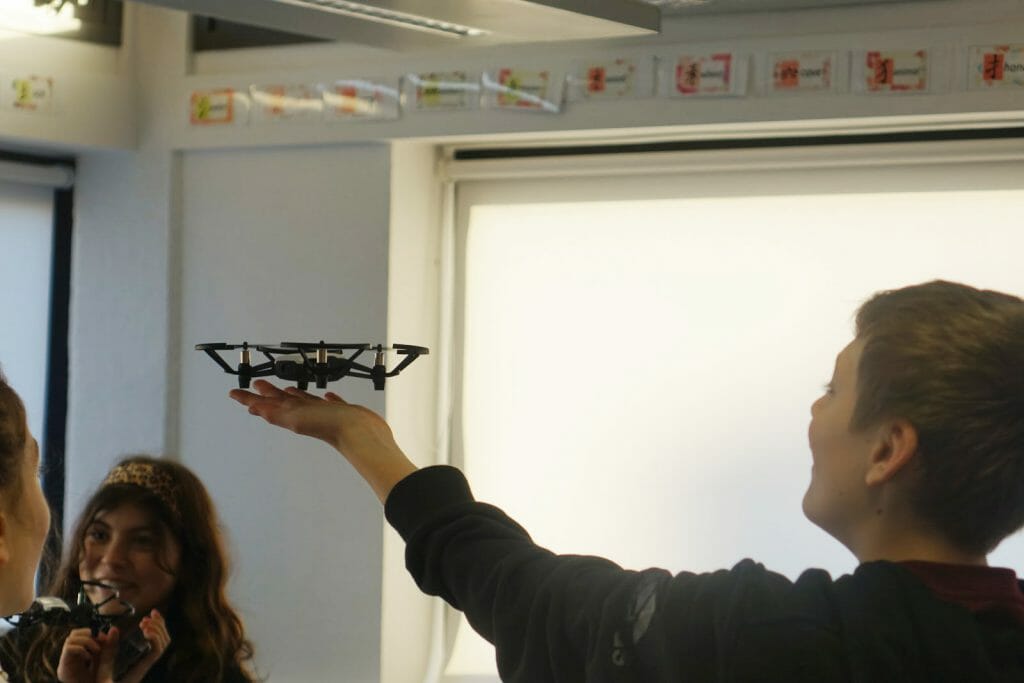
+

Meet Teaching Lab Technician, Tewolde Hagos!
“Our students take responsibility for the planning, execution and evaluation of their lab experiments,” shares our Teaching Lab Technician, Tewolde Hagos, who sat down with us to provide a detailed insight into Halcyon’s science lab environments. “They use technologies including spirometers, EKG sensors and drop counters to answer research questions they design.”
In their Internal Assessments (pictured above), our Grade 12 students applied their knowledge of these tools to conduct research projects which are crucial to the future of our world: investigating pollution, disease, nutrition, and more. These students will graduate from Halcyon in 2021 - and here’s how our Science team has prepared them to enter the world as global citizens, leaders, and change-makers with the help of leading-edge facilities.

From Grade 6, our students are often responsible for crafting their own investigations, provided with the opportunity to select and apply a range of laboratory technologies that will enhance their learning. In the Middle Years Programme, our teachers aim to help students develop a sensitivity to ‘living and non-living environments’ around them - something that is achieved through hands-on “research, observation and experimentation.” (Read more: IB Subjects at Halcyon.)
In a recent lesson focused on exploring the electromagnetism of iron coils, Grade 8 students used magnetic field sensors to measure the impact of independent variables of their choosing. Some students chose to alter how many times the coil wrapped around the iron nail, for example, whereas some students chose to alter the length of the nail itself. Grade 7 also designed their own investigations to test material insulation properties in a product design scenario, each student using different pieces of equipment to complete their experiments.

Tewolde explains that, from Grade 6, students are also provided with the most up-to-date digital Vernier technologies for recording, interpreting, and presenting data. Although students do practise pen-and-paper graph-plotting, Vernier technologies are connected to the scientific instruments so that data is measured, updated and recorded live, automatically displaying on a table and graph type of the student’s choosing. This is another way of providing students with a sense of responsibility for their own investigation.
Grade 8’s magnetic field sensors were connected directly to the Vernier recording software, which allowed students to see the impact of their chosen variable on the progression of their data on their screens in real-time. “This helps students to understand the purpose of collecting data, and what their raw data means - they also develop their understanding of interpretation.”

“If a student is interested in investigating urban pollution, they can borrow carbon dioxide sensors, spirometers, and even radiation sensors - these can all reveal a huge amount about our environment,” explains Tewolde, sharing some more details on the laboratory technologies available to students at Halcyon.
Our class of 2020 graduate, Nikhita, used a variety of technologies to investigate the prevalence of respiratory diseases in urban areas for her Extended Essay. She is now enjoying her studies of Global Health and Medicine at Kings’ College London.
Our students who are interested in studying dentistry have an array of scientific instruments at their disposal to investigate the effects of pH and sugar levels on bones, for example - this question formed the foundation of Clara’s Extended Essay, who is now studying Dentistry at the prestigious Barts School, Queen Mary’s University. Other alumni who have graduated from Halcyon to study Civil Engineering, Physics, and Architecture at colleges such as Delft University have had the opportunity to apply tools such as force and acceleration sensors, spectrophotometers, conductivity sensors and more to their learning. Applying these cutting-edge technologies to data collection and interpretation is a key skill for careers in science: for example, cell multiplication is measured digitally as part of vaccine research and production.
Additional research guidance offered to Diploma Programme students supports students in having the confidence to explore new horizons in their IB Extended Essays and Internal Assessments. Our Science Team and Teaching Lab Technician can support students in citing data analysis methods, validating sources, and thorough corroboration with secondary research.

Halcyon’s Extra-Curricular Activities include STEM Club, Medics Club, and Maths Challenge. Students also explore their curiosities through Explorations including Forensics, Robotics, Outdoor Science, and App Maker.
Interested in finding out more about life and learning at Halcyon? Join us at a Virtual Open House!
Subscribe to hear more updates on our curriculum, facilities, team and more: